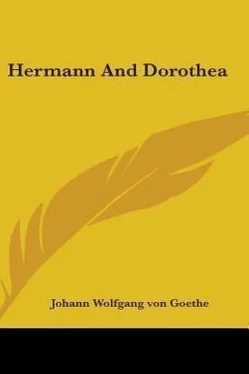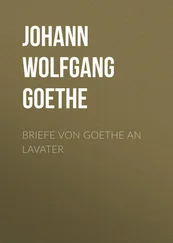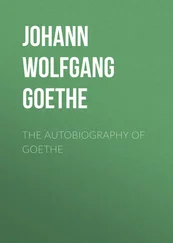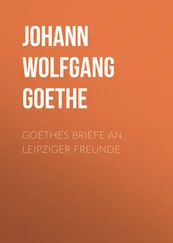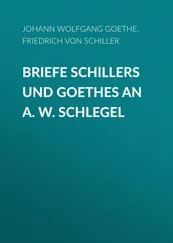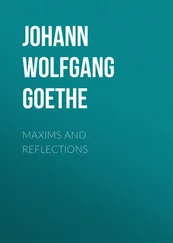Johann von Goethe - Hermann and Dorothea
Здесь есть возможность читать онлайн «Johann von Goethe - Hermann and Dorothea» весь текст электронной книги совершенно бесплатно (целиком полную версию без сокращений). В некоторых случаях можно слушать аудио, скачать через торрент в формате fb2 и присутствует краткое содержание. Год выпуска: 2015, Издательство: epubBooks Classics, Жанр: Поэзия, на английском языке. Описание произведения, (предисловие) а так же отзывы посетителей доступны на портале библиотеки ЛибКат.
- Название:Hermann and Dorothea
- Автор:
- Издательство:epubBooks Classics
- Жанр:
- Год:2015
- ISBN:нет данных
- Рейтинг книги:3 / 5. Голосов: 1
-
Избранное:Добавить в избранное
- Отзывы:
-
Ваша оценка:
- 60
- 1
- 2
- 3
- 4
- 5
Hermann and Dorothea: краткое содержание, описание и аннотация
Предлагаем к чтению аннотацию, описание, краткое содержание или предисловие (зависит от того, что написал сам автор книги «Hermann and Dorothea»). Если вы не нашли необходимую информацию о книге — напишите в комментариях, мы постараемся отыскать её.
of Goethe. In clearness of characterization, in unity of tone, in the adjustment of background and foreground, in the conduct of the narrative, it conforms admirably to the strict canons of art; yet it preserves a freshness and spontaneity in its emotional appeal that are rare in works of so classical a perfection in form.
Hermann and Dorothea — читать онлайн бесплатно полную книгу (весь текст) целиком
Ниже представлен текст книги, разбитый по страницам. Система сохранения места последней прочитанной страницы, позволяет с удобством читать онлайн бесплатно книгу «Hermann and Dorothea», без необходимости каждый раз заново искать на чём Вы остановились. Поставьте закладку, и сможете в любой момент перейти на страницу, на которой закончили чтение.
Интервал:
Закладка:
Thalia
The Citizens
Thus did the modest son slip away from the angry upbraiding;
But in the tone he had taken at first, the father continued:
"That comes not out of a man which he has not in him; and hardly
Shall the joy ever be mine of seeing my dearest wish granted:
That my son may not as his father be, but a better.
What would become of the house, and what of the city if each one
Were not with pleasure and always intent on maintaining, renewing,
Yea, and improving, too, as time and the foreigner teach us!
Man is not meant, forsooth, to grow from the ground like a mushroom,
Quickly to perish away on the spot of ground that begot him,
Leaving no trace behind of himself and his animate action!
As by the house we straightway can tell the mind of the master,
So, when we walk through a city, we judge of the persons who rule it.
For where the towers and walls are falling to ruin; where offal
Lies in heaps in the gutters, and alleys with offal are littered;
Where from its place has started the stone, and no one resets it;
Where the timbers are rotting away, and the house is awaiting
Vainly its new supports,—that place we may know is ill governed.
Since if not from above work order and cleanliness downward,
Easily grows the citizen used to untidy postponement;
Just as the beggar grows likewise used to his ragged apparel.
Therefore I wished that our Hermann might early set out on some travels;
That he at least might behold the cities of Strasburg and Frankfort,
Friendly Mannheim, too, that is cheerful and evenly builded.
He that has once beheld cities so cleanly and large, never after
Ceases his own native city, though small it may be, to embellish.
Do not the strangers who come here commend the repairs in our gateway,
Notice our whitewashed tower, and the church we have newly rebuilded?
Are not all praising our pavement? the covered canals full of water,
Laid with a wise distribution, which furnish us profit and safety,
So that no sooner does fire break out than 'tis promptly arrested?
Has not all this come to pass since the time of our great conflagration?
Builder I six times was named by the council, and won the approval,
Won moreover the heartfelt thanks of all the good burghers,
Actively carrying out what I planned, and also fulfilling
What had by upright men been designed, and left uncompleted.
Finally grew the same zeal in every one of the council;
All now labor together, and firmly decided already
Stands it to build the new causeway that shall with the highroad connect us.
But I am sorely afraid that will not be the way with our children.
Some think only of pleasure and perishable apparel;
Others will cower at home, and behind the stove will sit brooding.
One of this kind, as I fear, we shall find to the last in our Hermann."
Straightway answered and said the good and intelligent mother:
"Why wilt thou always, father, be doing our son such injustice?
That least of all is the way to bring thy wish to fulfilment.
We have no power to fashion our children as suiteth our fancy;
As they are given by God, we so must have them and love them;
Teach them as best we can, and let each of them follow his nature.
One will have talents of one sort, and different talents another.
Every one uses his own; in his own individual fashion,
Each must be happy and good. I will not have my Hermann found fault with;
For he is worthy, I know, of the goods he shall one day inherit;
Will be an excellent landlord, a pattern to burghers and builders;
Neither in council, as I can foresee, will he be the most backward.
But thou keepest shut up in his breast all the poor fellow's spirit,
Finding such fault with him daily, and censuring as thou but now hast."
And on the instant she quitted the room, and after him hurried,
Hoping she somewhere might find him, and might with her words of affection
Cheer him again, her excellent son, for well he deserved it.
Thereupon when she was gone, the father thus smiling continued:
"What a strange folk, to be sure, are these women; and just like the children;
Both of them bent upon living according as suiteth their pleasure,
While we others must never do aught but flatter and praise them.
Once for all time holds good the ancients' trustworthy proverb:
'Whoever goes not forward comes backward.' So must it be always."
Thereupon answered and said, in a tone of reflection, the doctor:
"That, sir neighbor, I willingly grant; for myself I am always
Casting about for improvement,—things new, so they be not too costly.
But what profits a man, who has not abundance of money,
Being thus active and stirring, and bettering inside and outside?
Only too much is the citizen cramped: the good, though he know it,
Has he no means to acquire because too slender his purse is,
While his needs are too great; and thus is he constantly hampered.
Many the things I had done; but then the cost of such changes
Who does not fear, especially now in this season of danger?
Long since my house was smiling upon me in modish apparel!
Long since great panes of glass were gleaming in all of the windows!
But who can do as the merchant does, who, with his resources,
Knows the methods as well by which the best is arrived at?
Look at that house over yonder,—the new one; behold with what splendor
'Gainst the background of green stand out the white spirals of stucco!
Great are the panes in the windows; and how the glass sparkles and glitters,
Casting quite into the shade the rest of the market–place houses!
Yet just after the fire were our two houses the finest,
This of the Golden Lion, and mine of the sign of the Angel.
So was my garden, too, throughout the whole neighborhood famous:
Every traveller stopped and gazed through the red palisadoes,
Caught by the beggars there carved in stone and the dwarfs of bright colors.
Then whosoever had coffee served in the beautiful grotto,—
Standing there now all covered with dust and Partly in ruins,—
Used to be mightily pleased with the glimmering light of the mussels
Spread out in beautiful order; and even the eye of the critic
Used by the sight of my corals and potter's ore to be dazzled.
So in my parlor, too, they would always admire the painting,
Where in a garden are gaily dressed ladies and gentlemen walking,
And with their taper fingers are plucking and holding the flowers.
But who would look at it now! In sooth, so great my vexation
Scarcely I venture abroad. All now must be other and tasteful,
So they call it; and white are the laths and benches of wood–work;
Everything simple and smooth; no carving longer or gilding
Can be endured, and the woods from abroad are of all the most costly.
Well, I too should be glad could I get for myself something novel;
Glad to keep up with the times, and be changing my furniture often;
Yet must we all be afraid of touching the veriest trifle.
For who among us has means for paying the work–people's wages
Lately I had an idea of giving the Archangel Michael,
Making the sign of my shop, another fresh coating of gilding,
And to the terrible dragon about his feet that is winding;
But I e'en let him stay browned as he is: I dreaded the charges."
Euterpe
Mother and Son
Thus entertaining themselves, the men sat talking. The mother
Went meanwhile to look for her son in front of the dwelling,
First on the settle of stone, whereon 'twas his wont to be seated.
When she perceived him not there, she went farther to look in the stable,
If he were caring perhaps for his noble horses, the stallions,
Which he as colts had bought, and whose care he intrusted to no one.
And by the servant she there was told: He is gone to the garden.
Then with a nimble step she traversed the long, double courtyards,
Leaving the stables behind, and the well–builded barns, too, behind her;
Entered the garden, that far as the walls of the city extended;
Walked through its length, rejoiced as she went in every thing growing;
Set upright the supports on which were resting the branches
Heavily laden with apples, and burdening boughs of the pear–tree.
Next some caterpillars removed from a stout, swelling cabbage;
For an industrious woman allows no step to be wasted.
Thus was she come at last to the end of the far–reaching garden,
Where stood the arbor embowered in woodbine; nor there did she find him,
More than she had hitherto in all her search through the garden.
But the wicket was standing ajar, which out of the arbor,
Once by particular favor, had been through the walls of the city
Cut by a grandsire of hers, the worshipful burgomaster.
So the now dried–up moat she next crossed over with comfort,
Where, by the side of the road, direct the well–fenced vineyard,
Rose with a steep ascent, its slope exposed to the sunshine.
Up this also she went, and with pleasure as she was ascending
Marked the wealth of the clusters, that scarce by their leafage were hidden.
Shady and covered the way through the lofty middlemost alley,
Which upon steps that were made of unhewn blocks you ascended.
There were the Muscatel, and there were the Chasselas hanging
Side by side, of unusual size and colored with purple,
All set out with the purpose of decking the visitor's table;
While with single vine–stocks the rest of the hillside was covered,
Bearing inferior clusters, from which the delicate wine comes.
Thus up the slope she went, enjoying already the vintage,
And that festive day on which the whole country, rejoicing,
Picks and tramples the grapes, and gathers the must into vessels:
Fireworks, when it is evening, from every direction and corner
Crackle and blaze, and so the fairest of harvests is honored.
But more uneasy she went, her son after twice or thrice calling,
And no answer receiving, except from the talkative echo,
That with many repeats rang back from the towers of the city.
Strange it was for her to seek him; he never had gone to a distance
That he told her not first, to spare his affectionate mother
Every anxious thought, and fear that aught ill had befallen.
Still did she constantly hope that, if further she went, she should find him;
For the two doors of the vineyard, the lower as well as the upper,
Both were alike standing open. So now she entered the cornfield,
That with its broad expanse the ridge of the hill covered over.
Still was the ground that she walked on her own; and the crops she rejoiced in,—
All of them still were hers, and hers was the proud–waving grain, too,
Over the whole broad field in golden strength that was stirring.
Keeping the ridgeway, the footpath, between the fields she went onward,
Having the lofty pear–tree in view, which stood on the summit,
And was the boundary–mark of the fields that belonged to her dwelling.
Who might have planted it, none could know, but visible was it
Far and wide through the country; the fruit of the pear–tree was famous.
'Neath it the reapers were wont to enjoy their meal at the noon–day,
And the shepherds were used to tend their flocks in its shadow.
Benches of unhewn stones and of turf they found set about it.
And she had not been mistaken, for there sat her Hermann, and rested,—
Sat with his head on his hand, and seemed to be viewing the landscape
That to the mountains lay: his back was turned to his mother.
Towards him softly she crept, and lightly touched on the shoulder;
Quick he turned himself round: there were tears in his eyes as he met her.
"Mother, how hast thou surprised me!" he said in confusion; and quickly
Wiped the high–spirited youth his tears away. But the mother,
"What! do I find thee weeping, my son?" exclaimed in amazement.
"Nay, that is not like thyself: I never before have so seen thee!
Tell me, what burdens thy heart? what drives thee here, to be sitting
Under the pear–tree alone? These tears in thine eyes, what has brought them?"
Then, collecting himself, the excellent youth made her answer:
"Truly no heart can that man have in his bosom of iron,
Who is insensible now to the needs of this emigrant people;
He has no brains in his head, who not for his personal safety,
Not for his fatherland's weal, in days like the present is anxious.
Deeply my heart had been touched by the sights and sounds of the morning;
Then I went forth and beheld the broad and glorious landscape
Spreading its fertile slopes in every direction about us,
Saw the golden grain inclining itself to the reapers,
And the promise of well–filled barns from the plentiful harvest.
But, alas, how near is the foe! The Rhine with its waters
Guards us, indeed; but, ah, what now are rivers and mountains
'Gainst that terrible people that onward bears like a tempest!
For they summon their youths from every quarter together,
Call up their old men too, and press with violence forward.
Death cannot frighten the crowd: one multitude follows another.
And shall a German dare to linger behind in his homestead?
Hopes he perhaps to escape the everywhere threatening evil?
Nay, dear mother, I tell thee, to–day has made me regretful
That I was lately exempt, when out of our townsmen were chosen
Those who should serve in the army. An only son I am truly,
Also our business is great, and the charge of our household is weighty.
Yet were it better, I deem, in the front to offer resistance
There on the border, than here to await disaster and bondage.
So has my spirit declared, and deep in my innermost bosom
Courage and longing have now been aroused to live for my country,
Yea, and to die, presenting to others a worthy example.
If but the strength of Germany's youth were banded together
There on the frontier, resolved that it never would yield to the stranger,
Ah, he should not on our glorious soil be setting his foot–steps,
Neither consuming before our eyes the fruit of our labor,
Ruling our men, and making his prey of our wives and our daughters.
Hark to me, mother: for I in the depths of my heart am determined
Quickly to do, and at once, what appears to me right and in reason;
For he chooses not always the best who longest considers.
Hearken, I shall not again return to the house; but directly
Go from this spot to the city, and there present to the soldiers
This right arm and this heart, to be spent in the fatherland's service.
Then let my father say if there be no feeling of honor
Dwelling within my breast, nor a wish to raise myself higher."
Then with significant words spoke the good and intelligent mother,
While from her eyes the quick–starting tears were silently falling:
"Son, what change has come o'er thee to–day, and over thy temper,
That thou speakest no more, as thou yesterday didst, and hast always,
Open and free, to thy mother, and tellest exactly thy wishes?
Any one else, had he heard thee thus speak, would in sooth have commended,
And this decision of thine would have highly approved as most noble,
Being misled by thy tone and by thy significant language.
Yet have I nothing but censure to speak; for better I know thee.
Thou concealest thy heart, and thy thoughts are not such as thou tellest.
Well do I know that it is not the drum, not the trumpet that calls thee:
Neither in uniform wouldst thou figure in sight of the maidens;
Since, for all thou art honest and brave, it is thy vocation
Here in quiet to care for the farm and provide for the household.
Tell me honestly, therefore, what goads thee to such a decision?"
Earnestly answered the son: "Nay, thou art mistaken, dear mother:
One day is not like another. The youth matures into manhood:
Better in stillness oft ripening to deeds than when in the tumult
Wildering and wild of existence, that many a youth has corrupted.
And, for as still as I am and was always, there yet in my bosom
Has such a heart been shaped as abhors all wrong and injustice;
And I have learned aright between worldly things to distinguish.
Arm and foot, besides, have been mightily strengthened by labor.
All this, I feel, is true: I dare with boldness maintain it.
Yet dost thou blame me with reason, O mother! for thou hast surprised me
Using a language half truthful and half that of dissimulation.
For, let me honestly own,—it is not the near danger that calls me
Forth from my father's house; nor is it the lofty ambition
Helpful to be to my country, and terrible unto the foeman.
They were but words that I spoke: they only were meant for concealing
Those emotions from thee with which my heart is distracted;
And so leave me, O mother! for, since the wishes are fruitless
Which in my bosom I cherish, my life must go fruitlessly over.
For, as I know, he injures himself who is singly devoted,
When for the common cause the whole are not working together."
"Hesitate not," replied thereupon the intelligent mother,
"Every thing to relate me, the smallest as well as the greatest.
Men will always be hasty, their thoughts to extremes ever running:
Easily out of their course the hasty are turned by a hindrance.
Whereas a woman is clever in thinking of means, and will venture
E'en on a roundabout way, adroitly to compass her object.
Let me know every thing, then; say wherefore so greatly excited
'As I ne'er saw thee before, why thy blood is coursing so hotly,
Wherefore, against thy will, tears are filling thine eyes to o'erflowing."
Then he abandoned himself, the poor boy, to his sorrow, and weeping,
Weeping aloud on his kind mother's breast, he brokenly answered:
"Truly my father's words to–day have wounded me sorely,—
Words which I have not deserved; not to–day, nor at any time have I:
For it was early my greatest delight to honor my parents.
No one knew more, so I deemed, or was wiser than those who begot me,
And had with strictness ruled throughout the dark season of childhood.
Many the things, in truth, I with patience endured from my playmates,
When the good–will that I bore them they often requited with malice.
Often I suffered their flings and their blows to pass unresented;
But if they ventured to ridicule father, when he of a Sunday
Home from Church would come, with his solemn and dignified bearing;
If they made fun of his cap–string, or laughed at the flowers of the wrapper
He with such stateliness wore, which was given away but this morning,—
Threateningly doubled my fist in an instant; with furious passion
Fell I upon them, and struck out and hit, assailing them blindly,
Seeing not where. They howled as the blood gushed out from their noses:
Scarcely they made their escape from my passionate kicking and beating.
Then, as I older grew, I had much to endure from my father;
Violent words he oft vented on me, instead of on others,
When, at the board's last session, the council had roused his displeasure,
And I was made to atone for the quarrels and wiles of his colleagues.
Thou has pitied me often thyself; for much did I suffer,
Ever remembering with cordial respect the kindness of parents,
Solely intent on increasing for us their goods and possessions,
Much denying themselves in order to save for their children.
But, alas! saving alone, for the sake of a tardy enjoyment,—
That is not happiness: pile upon pile, and acre on acre,
Make us not happy, no matter how fair our estates may be rounded.
For the father grows old, and with him will grow old the children,
Losing the joy of the day, and bearing the care of tomorrow.
Look thou below, and see how before us in glory are lying,
Fair and abundant, the corn–fields; beneath them, the vineyard and garden;
Yonder the stables and barns; our beautiful line of possessions.
But when I look at the dwelling behind, where up in the gable
We can distinguish the window that marks my room in the attic;
When I look back, and remember how many a night from that window
I for the moon have watched; for the sun, how many a morning!
When the healthful sleep of a few short hours sufficed me,—
Ah, so lonely they seem to me then, the chamber and courtyard,
Garden and glorious field, away o'er the hill that is stretching;
All so desert before me lie: 'tis the wife that is wanting."
Thereupon spoke the good mother, and thus with intelligence answered:
"Son, not greater thy wish to bring thee a bride to thy chamber,
That thou mayst find thy nights a beautiful part of existence,
And that the work of the day may gain independence and freedom,
Than is thy father's wish too, and thy mother's. We always have counselled,—
Yea, we have even insisted,—that thou shouldst select thee a maiden.
But I was ever aware, and now my heart gives me assurance,
That till the hour appointed is come, and the maiden appointed
Shall with the hour appear, the choice will be left for the future,
While more strong than all else will be fear of grasping the wrong one.
If I may say it, my son, I believe thou already hast chosen;
For thy heart has been touched, and been made more than wontedly tender.
Speak it out honestly, then; for my soul has told me beforehand:
That same maiden it is, the exile, whom thou hast elected."
"Thou has said, mother!" the son thereupon with eagerness answered.
"Yes, it is she; and if I to–day as my bride do not bring her
Home to our dwelling, she from me will go, perhaps vanish for ever,
Lost in the war's confusion and sad movings hither and thither.
Mother, for ever in vain would then our abundant possessions
Prosper before me, and seasons to come be in vain to me fruitful.
Yea, I should hold in aversion the wonted house and the garden:
Even my mother's love, alas! would not comfort my sorrow.
Every tie, so I feel in my heart, by love is unloosened
Soon as she fastens her own; and not the maid is it only
Leaves behind father and mother, to follow the man she has chosen.
He too, the youth, no longer knows aught of mother and father,
When he the maiden, his only beloved, sees vanishing from him.
Suffer me, then, to go hence wherever despair shall impel me:
Since by my father himself the decisive words have been spoken;
Since his house can no longer be mine if he shut out the maiden,
Her whom alone as my bride I desire to bring to our dwelling."
Thereupon quickly made answer the good and intelligent mother:
"How like to rocks, forsooth, two men will stand facing each other!
Proud and not to be moved, will neither draw near to his fellow;
Neither will stir his tongue to utter the first word of kindness.
Therefore I tell thee, my son, a hope yet lives in my bosom,
So she be honest and good, thy father will let thee espouse her,
Even though poor, and against a poor girl so decisive his sentence.
Many a thing he is wont to speak out in his violent fashion
Which he yet never performs; and so what he denies will consent to.
Yet he requires a kindly word, and is right to require it: He is the father!
Besides we know that his wrath after dinner,—
When he most hastily speaks, and questions all others' opinions,—
Signifies naught; the full force of his violent will is excited
Then by the wine, which lets him not heed the language of others;
None but himself does he see and feel. But now is come evening,
Talk upon various subjects has passed between him and his neighbors.
Gentle, he is; I am sure now his little excitement is over,
And he can feel how unjust his passion has made him to others.
Come, let us venture at once: success is alone to the valiant!
Further we need the friends, still sitting together there with him;
And in especial the worthy pastor will give us assistance."
Thus she hastily spoke, and up from the stone then arising,
Drew from his seat her son, who willingly followed. In silence
Both descended the hill, their important purpose revolving.
Интервал:
Закладка:
Похожие книги на «Hermann and Dorothea»
Представляем Вашему вниманию похожие книги на «Hermann and Dorothea» списком для выбора. Мы отобрали схожую по названию и смыслу литературу в надежде предоставить читателям больше вариантов отыскать новые, интересные, ещё непрочитанные произведения.
Обсуждение, отзывы о книге «Hermann and Dorothea» и просто собственные мнения читателей. Оставьте ваши комментарии, напишите, что Вы думаете о произведении, его смысле или главных героях. Укажите что конкретно понравилось, а что нет, и почему Вы так считаете.
